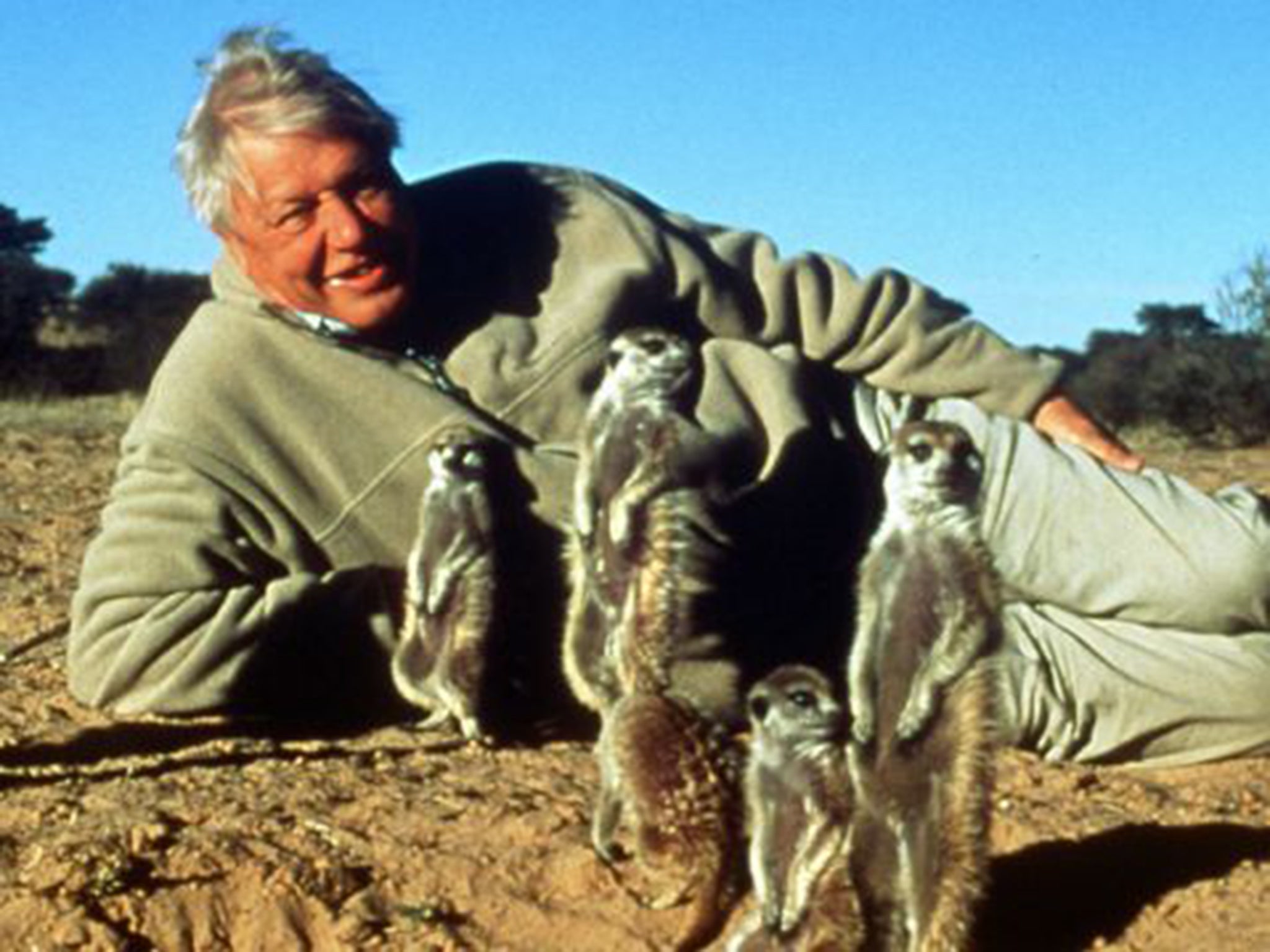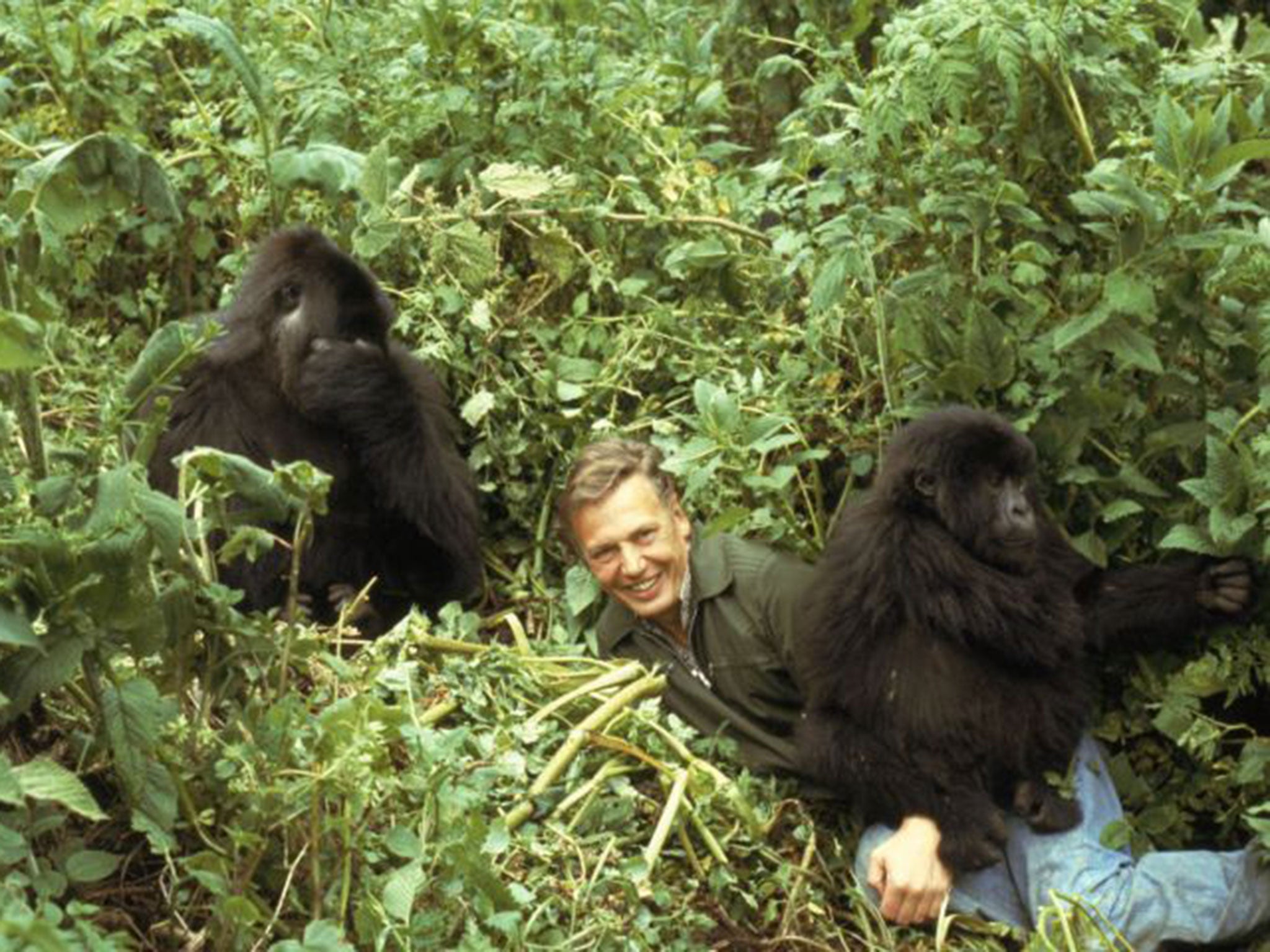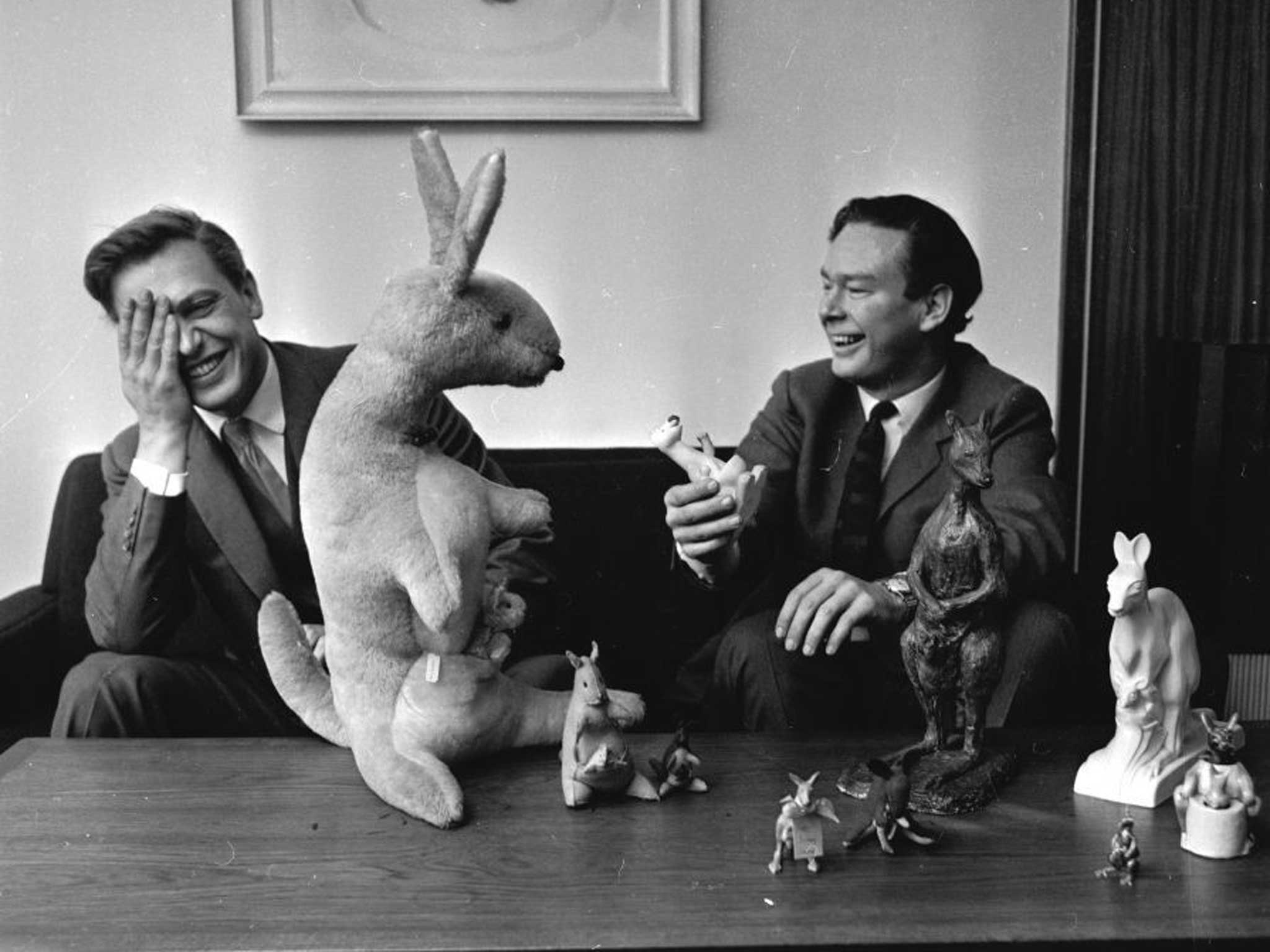Tussle of the big beasts: David Attenborough's team behind The Blue Planet and Planet Earth sign a deal with Netflix
The creative team behind Sir David’s hit series The Blue Planet, Planet Earth and Frozen Planet have left the BBC and will produce a new series called Our Planet

Your support helps us to tell the story
From reproductive rights to climate change to Big Tech, The Independent is on the ground when the story is developing. Whether it's investigating the financials of Elon Musk's pro-Trump PAC or producing our latest documentary, 'The A Word', which shines a light on the American women fighting for reproductive rights, we know how important it is to parse out the facts from the messaging.
At such a critical moment in US history, we need reporters on the ground. Your donation allows us to keep sending journalists to speak to both sides of the story.
The Independent is trusted by Americans across the entire political spectrum. And unlike many other quality news outlets, we choose not to lock Americans out of our reporting and analysis with paywalls. We believe quality journalism should be available to everyone, paid for by those who can afford it.
Your support makes all the difference.It’s hard to imagine the BBC’s landmark natural history shows without a hushed narration by David Attenborough. But the veteran broadcaster could now be poached by Netflix, which has announced that it is to produce its own big-budget nature epics.
The creative team behind Sir David’s hit series The Blue Planet, Planet Earth and Frozen Planet have left the BBC and signed a deal with Netflix, the online subscription service, to create a new natural history series called Our Planet.
Produced by Silverback Films, a company led by Alastair Fothergill who first worked with Sir David on the 1990 series The Trials of Life, Our Planet will be shot in the Ultra HD 4K format, which is being used in James Cameron’s Avatar sequels.
The eight-part series will feature “never-before-filmed settings, ranging from the ice caps and deep ocean to deserts and remote forests”. It will introduce viewers to some of the “world’s rarest animals and most precious natural habitats”.

It is not only the name of Our Planet, set to make its debut in 2019, that shares a passing similarity with One Planet, a landmark series being produced by the BBC’s Natural History Unit in Bristol.
One Planet, to be screened by BBC1 in 2016, marks the 10th anniversary of Planet Earth, another Fothergill-produced series which was a huge hit and was shown in 130 countries.
One Planet will use “limitless zoom” filming techniques to “introduce viewers to the rules of the game of life. From mountains to deserts, wild islands to man-made cities, each episode selects the most spectacular scenes and stories from around the globe to create the ultimate tour of an iconic ecosystem.”
But which series will boast Attenborough’s imprimatur? Sir David turns 89 on 8 May and the BBC has yet to confirm his involvement in One Planet.
Dr Wendy Darke, head of the BBC’s Natural History Unit (NHU), said: “He [Sir David] would definitely be somebody that you would want to consider. He’ll be 90 next year. So even he says himself, ‘Wendy, one step at a time.’ But, of course, he is our greatest orator and storyteller of the natural world. I would never rule him out.”
The BBC is building a pool of possible successors to Sir David, who has no immediate plans to retire. They include Lucy Cooke, an Oxford zoology graduate, who has said she aims to bring entertainment and humour to her roles as a natural history presenter. “People like to be told stories by people they share similar aspirations with – there’s a huge amount of energy being put into having a broad range of credible, viable presenters,” Dr Darke said.
Mr Fothergill said: “Of course I would be delighted if Sir David narrated Our Planet. But no decisions have been taken.” Having worked at the NHU for nearly 30 years and produced the feature film Deep Blue, he did not envisage any copyright issues with the rival series.
“The word ‘planet’ is pretty widely used. Ours is a very different proposal and a very different concept. It isn’t a sequel to Planet Earth. Our Planet is going to raise the bar for natural history landmarks.”
Sir David has committed to presenting three new BBC natural history programmes this year, including Waking Giants, the story of one of the “dinosaur finds of the century”, and Big Birds on BBC2.
The latest epic from the NHU stable is Shark, narrated by the actor Paul McGann, which begins on BBC1 on 7 May. Using Ultra HD technology, it aims to rehabilitate the public image of the ocean predators, through footage showing shark courtship and even how the animals clean their teeth.
Dr Darke said: “It’s 40 years on from Jaws. When we think of sharks, fear has become the emotional response.

“While I think sharks are to be respected in our world, this series looks at the side of sharks few of us have ever considered. This series revels in the beauty, awe and wonder of the animals; the footage is quite emotional in places.”
Dr Darke, a marine biologist and the first woman to head the NHU, defended her decision to use non-academic experts such as Radzi Chinyanganya, presenter of the CBBC series Wild, who is a hip-hop-loving karate champion.
She said: “Academic qualifications aren’t essential – it’s about passion and a fascination with the subject area. As well as our landmark shows, we have the confidence to push the boundaries with new presenters, new formats and new styles.”
The NHU series are a huge money-spinner for BBC Worldwide, the corporation’s commercial arm.
Netflix has indicated it is prepared to invest heavily to create similar series with a wide global appeal.
Join our commenting forum
Join thought-provoking conversations, follow other Independent readers and see their replies
Comments